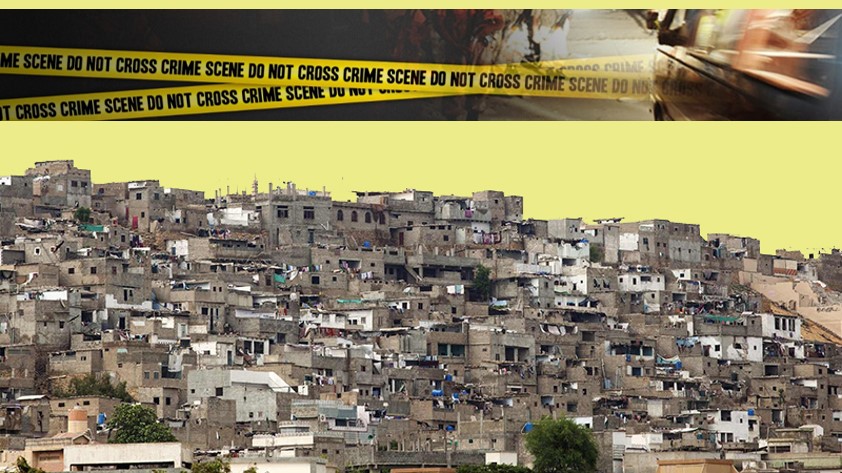According to Karachi Police Chief “The city is becoming an ocean of concrete with undocumented and uncontrolled population. It has to be ‘reframed’ in a planned way otherwise the city will become prey to its own serious issues.” In a meeting at the Karachi Chamber of Commerce and Industry Additional Inspector General Imran Yaqub Minhas remarks that due to the lack of proper planning the city is gradually collapsing and facing great deal of problems. He also adds it is a matter of grave concern that there is “no expansion plan for Karachi as the city is witnessing an unplanned growth for decades.”
Poor urban design decisions always result in a poor physical environment which generates and multiplies the incidences of lawlessness. Therefore apprehensions and alarming bells over poor urban land planning and haphazard development by a law enforcement agency’ head is more than an eye opener for building control and land development authorities. The city is really collapsing rather being constructed. As the urban dynamics of Karachi pertaining to city’ planning, development and expansion contribute sizably in street crimes, civic violations, traffic accidents, social injustice and violence.
Policing and law enforcement is getting almost an impossible task in Karachi where a tacit uncheck over illegal settlements, encroachments and migrants has invalidated the local spectrum in the social environment of the metropolis. Let’s analyze these elements keeping in view urban planning in the city.
Illegal Settlements
A megacity of more than 25 million inhabitants, it is unfortunate nearly half of its population live in katchi abadis and irregular housing settlements. These settlements serves as shelters for poor and low-income groups, deprived of education, security and basic amenities. Therefore they openly bypass building laws and regulations as well as unlawfully approach to water, electricity or other utility services — thus induce criminality for their livelihood.
Urban planning has a key role to play in the prevention of above criminal activities. Planning contributes to identify root causes, establishes a local presence of the local admiration and helps to build trust between marginalized groups and institutions.
Encroachments
Encroachments have turned into a big mafia generating billions of illicit rupees annually in Karachi. On playgrounds, parks, footpaths, roadside spaces and other areas, encroachments can be seen in both residential and commercial forms in Karachi. The city administration including land authorities, municipal services and police stations keeps their eyes closed on encroachments deliberately. Until they become fully-grown neighborhoods or illegal societies.
The impacts of these encroachments or illegitimate occupation of spaces are hazardous. Not only they seize public spaces which cause nuisance and obstacles for free movement, but also affect the environment and public health in the city.
Social Alienation
Communities can be key partners when addressing crime. Public safety also needs partnerships between local authorities and community groups, along with a commitment to implement. But the sense of ownership is missing in Karachi and social alienation prevails among the citizens here.
One of the main reasons is uncheck over migration in Karachi from other cities and countries, which greatly contributes in this social alienation. These migrants’ count and their needs aren’t considered in city’ urban planning and public amelioration schemes, which marginalizes them in the society and leads them to crime and illegal activities.
In a word, Karachi’ building control and land development authorities have really failed to deliver the good in the megacity (specifically in the last two decades) which has induced crime and lawlessness here.
By
Editorial, Infocus


